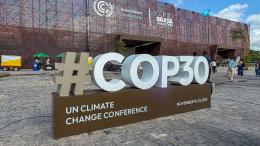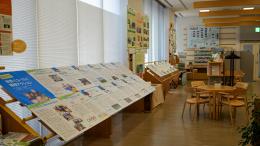Since the landmark adoption of Security Council Resolution 2250 (2015) on Youth, Peace and Security (YPS), there has been growing momentum to support young people’s participation in peacebuilding, even in some of the most fragile and politically constrained environments. Yet operating in fragile and conflict-affected areas can be a significant challenge. Even the most well-designed projects can be derailed by a deterioration in the security situation, an outbreak of conflict, or other sources of political instability and upheaval.
In research for the 2025 Peacebuilding Fund Thematic Review on Youth, Peace and Security, UNU-CPR examined a select number of youth- and YPS-focussed projects in 33 countries and territories, including those taking place in areas of active conflict, and in situations that were subject to significant political and social constraints. For several of the projects examined, these non-permissive environments – those subject to high political or security volatility, or where there limited openness to youth programming or external actors’ engagement with young people – dramatically foreclosed any significant impact or results. Yet two projects examined in Guinea illustrated ways that YPS priorities can be taken forward even amidst difficult circumstances, through strategic and iterative programming efforts, over a sustained period of time.
In Guinea, where over 77 per cent of the population is under 35, youth had long been sidelined and almost entirely excluded from national political dialogue during former President Alpha Condé’s 11-year administration. Young people were widely perceived as threats rather than partners or practitioners in governance, creating a deeply challenging environment for advancing youth political participation.
Despite the presence of a Youth Ministry and efforts to craft youth policies, Government support for genuine youth empowerment remained absent. As one former director at the Ministry of Youth recalled, “For over a decade, we tried to make progress... but the former Governments categorically refused to support a National Action Plan for youth.”
With no formal channels to participate, frustration boiled over. In mining towns like Kolaboui and Kamsar – rich in resources but lacking basic services – unemployment and marginalization drove many youths into protests and unrest. “Young people in the region couldn’t find job opportunities, and communities lacked essential services like clean water, electricity and employment,” said the Mayor of Kolaboui. “So, you can understand how this fuelled deep frustration.”
Faced with mounting obstacles, youth advocates adopted a strategic approach by focusing on building local foundations where barriers were fewer, rather than directly challenging national resistance. The strategy later inspired a PBF-supported project which supports the establishment of youth councils in 20 conflict-prone communities.
More opportunity arrived with the 2021 change of government. The transitional President showed greater openness to youth engagement, creating what many described as a "reset moment". A second PBF-supported project helped operationalize this vision, culminating in the official inauguration of the National Youth Council on September 25, 2023. Today, this council plays a vital role in shaping Guinea's new national youth policy.
The example from Guinea highlights that even in non-permissive environments, youth-focused peacebuilding can be advanced through strategic and adaptive programming approaches. This includes building trust gradually through localized engagement, investing in foundational work such as supporting local youth empowerment, capacity-building and engagement, and maintaining flexibility through iterative, phased funding strategies. Rather than aiming for rapid or highly visible impact, these approaches prioritize long-term positioning – ensuring that youth actors are ready to seize opportunities when political space opens, and that local ownership is strengthened over time.
This article is based on research taken from the 2025 Peacebuilding Fund Thematic Review on Youth, Peace and Security (YPS). Explore the full 2025 YPS Thematic Review to explore challenges and opportunities for peacebuilding to take forward the YPS agenda.


